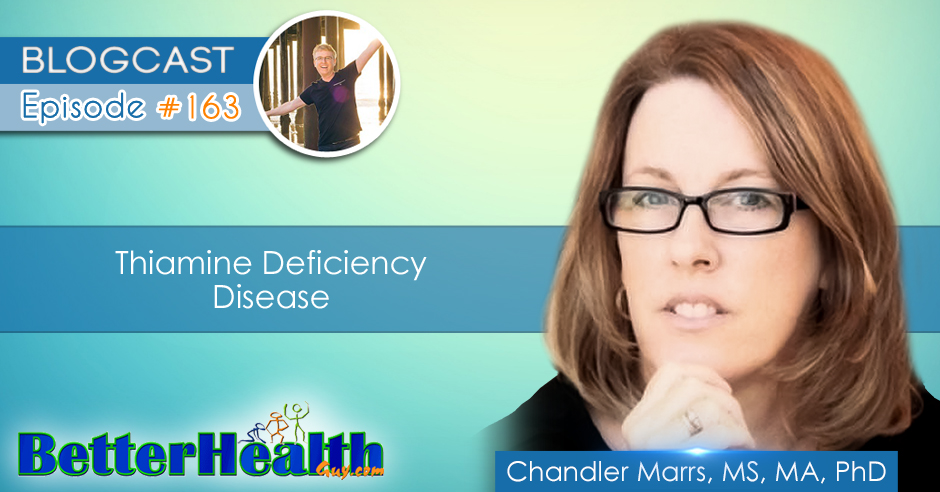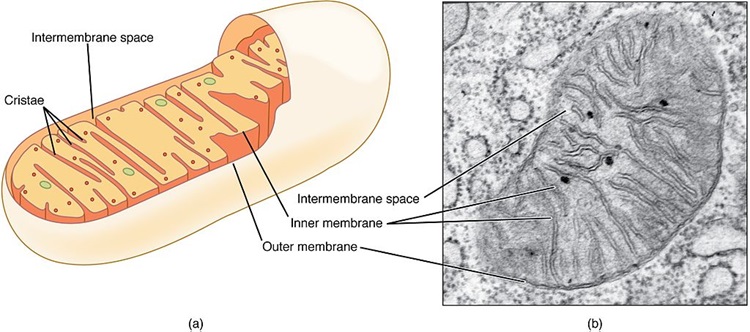Do you suffer from a chronic, treatment-refractory illness that no physician or medical treatment seems to be able to fix? Are you constantly fatigued, have weak or painful muscles, or have coordination difficulties? Do you have brain fog, memory, or language processing issues? How about GI symptoms like IBS, gastroparesis, SIBO, or other dysmotility or dysbiotic syndromes? If any of these things ring true, you might have a problem with thiamine.
Thiamine (vitamin B1) is critical for the metabolism of food into cellular energy or ATP. Without sufficient thiamine, cellular energy wanes, and with it, the capacity to maintain the energy to function declines. Chronic, unrelenting fatigue is a common characteristic of insufficient thiamine. At its root, fatigue is the physical manifestation of poor energy metabolism.
Why is this nutrient such a problem? Two reasons. First, it is the gatekeeper to energy metabolism and so if it is low, everything downstream gums up and does not work well. Second, modern diets, medicines, and other chemical exposures contain numerous anti-thiamine factors that derail thiamine absorption and metabolism. This pushes many people into states of chronic deficiency, one that is simple to correct if identified. Unfortunately, however, patients can go years before the deficiency is recognized.
Last week, I had the great pleasure of speaking with Scott Scott Forsgren, FDN-P, the BetterHealthGuy, about the myriad of ways thiamine deficiency expresses itself in modern illness. If you or someone you know might be deficient in thiamine, have a listen.
Thiamine Deficiency Disease – Video Link
For Audio Only
To find other listening platforms, view show notes, and review the transcript, visit https://betterhealthguy.com/
And if you would like a more in-depth look at this issue: Thiamine Deficiency Disease, Dysautonomia, and High Calorie Malnutrition.
We Need Your Help
More people than ever are reading Hormones Matter, a testament to the need for independent voices in health and medicine. We are not funded and accept limited advertising. Unlike many health sites, we don’t force you to purchase a subscription. We believe health information should be open to all. If you read Hormones Matter, and like it, please help support it. Contribute now.












Hello! I have spent a good amount of time reading the articles on this site, both of yours, Dr. Marrs, and of Dr. Lonsdale’s. Thank you for all your time and work you’ve put into this site.
I started taking TTFD a little over a month ago, titrating up to 500mg as tolerated, along with magnesium malate 400mg and B complex as I saw recommended here. I started taking the magnesium a few months ago. I am looking to heal fatigue and diarrhea caused by a medication I took 3 years ago.
I went through what seemed to be the paradox- the above symptoms worsened in addition to an odd feeling of unsteadiness on my feet. This last Wednesday, I believe the paradox ended as I did feel some improvement in well-being, and minor improvement in the stool issues, however symptoms do overall persist.
My question is, is there any sort of timeline you have seen for improvement? Once the paradox period ends, does it still take a number of months to improve?
I ask because much of what I have read here concerns the paradox time period, but not necessarily what comes after.
Hi Dr Lonsdale and Dr. Marrs,
Since July 2022 every day I have been feeling stoned/drugged and I do not do drugs or drink. It’s like a helmet is over my brain. Earlier on I had fluctuations of low, moderate and high symptoms but for months now it is moderate to high levels of this symptom of feeling stoned or drugged. It has turned my life upside down and no doctor has been able to tell me what is wrong with me!!!!! I’ve made lifestyle changes. I desperately need help. I am willing to do whatever I need to be able to think clearly again. (I have no thyroid or gallbladder as well as other things) Please help me!! Thank you, Nicole Speach
Reply
I have been having similar issues. I would try a good conezymated sublingual b complex. It helps some. For me, tyrosine, tmg, vitamin c, iron, the b complex I mentioned, a good multi vitamin/mineral all seem to help.
My husband has been put on Metformin as a cancer treatment, at the same time the Dr put him on 200mg of B1.
He is taking 500mg Metformin and working up to 750 per day. Should the B1 go up also?
Yes, I am alive and well, But I am amazed at the ignorance of American doctors. For every case report written here. there are a million people with a similar story.
Hi Dr Lonsdale and Dr. Marrs,
Since July 2022 every day I have been feeling stoned/drugged and I do not do drugs or drink. It’s like a helmet is over my brain. Earlier on I had fluctuations of low, moderate and high symptoms but for months now it is moderate to high levels of this symptom of feeling stoned or drugged. It has turned my life upside down and no doctor has been able to tell me what is wrong with me!!!!! I’ve made lifestyle changes. I desperately need help. I am willing to do whatever I need to be able to think clearly again. (I have no thyroid or gallbladder as well as other things) Please help me!! Thank you, Nicole Speach
Hello Doc,
I have listened to you in podcasts along with Elliot Overton. Is Dr. Derrick Lonsdale still alive? If not when did he pass away? Thank you for your amazing work.
Yes he is and he is 98 now.
Hi doctor lonsdale. My name is Sheryl clark. I want to say thank you so much. You saved my life with thiamine in 1984 I’m so very grateful. Thanks again
Do the anti-thiamine factors in tea and coffee, like tannins/polyphenols, have the same affect on benfotiamine s as they do on true thiamine, thiamine HCl, etc.?
Yes.
Thank you. Do you think waiting 1 hr. after taking it in the morning gives it enough of a head start before having coffee?
1-2 hours is recommended.